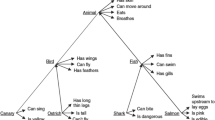Abstract
Artificial Intelligence, and the cognitivist view of mind on which it is based, represent the last stage of the rationalist tradition in philosophy. This tradition begins when Socrates assumes that intelligence is based on principles and when Plato adds the requirement that these principles must be strict rules, not based on taken-for-granted background understanding. This philosophical position, refined by Hobbes, Descartes and Leibniz, is finally converted into a research program by Herbert Simon and Allen Newell. That research program is now in trouble, so we must return to its source and question Socrates' assumption that intelligence consists in solving problems by following rules, and that one acquires the necessary rules by abstracting them from specific cases. A phenomenological description of skill acquisition suggests that the acquisition of expertise moves in just the opposite direction: from abstract rules to particular cases. This description of expertise accounts for the difficulties that have confronted AI for the last decade.
Similar content being viewed by others
References
Aristotle.Physics.
Dreyfus, Hubert and Stuart Dreyfus (1986).Mind Over Machine. Free Press.
Feigenbaum, Edward and Pamela McCorduck (1983).The Fifth Generation. Addison Wesley Publishing Co.
Fodor, Jerry A. (1975).The Language of Thought. Thomas Y. Crowell Company.
Fodor, Jerry A. (1985). Fodor's Guide to Mental Representation: The Intelligent Auntie's Vade-Mecum,Mind 94. 76–100.
Haugeland, John (1985).Artificial Intelligence, The Very Idea. Bradford/MIT Press.
Hobbes, Thomas.Leviathan.
Irwin, Terence (1977).Plato's Moral Theory. Oxford University Press.
von Leibniz Gottfried, W.F. (1677). Towards a Universal Characteristic.
Lunn, John H. (1984). Chick Sexing,American Scientist. 36.
Nehamas, Alexander (1986). Socratic Intellectualism,Proceeding of the Boston Area Colloquium in Ancient Philosophy. Vol II.
Newell, Alan and Herbert Simon (1981). Computer Science as Empirical Enquiry: Symbols and Search, in Haugeland (ed.)Mind Design. Bradford/MIT Press.
Plato.Apology.
Plato.Euthyphro.
Plato.Gorgias.
Plato.Laches.
Plato.Meno.
Polayni, Michael (1982).Personal Knowledge. Routledge and Kegan Paul. 2nd ed.
Rumelhart, David and James McClelland (1986).Parallel Distributed Processing. Bradford/MIT Press.
Author information
Authors and Affiliations
Rights and permissions
About this article
Cite this article
Dreyfus, H.L. The socratic and platonic basis of cognitivism. AI & Soc 2, 99–112 (1988). https://doi.org/10.1007/BF01891374
Issue Date:
DOI: https://doi.org/10.1007/BF01891374



